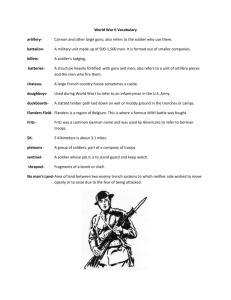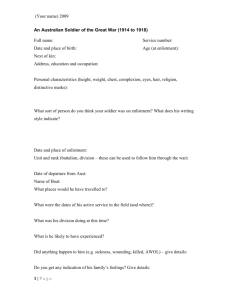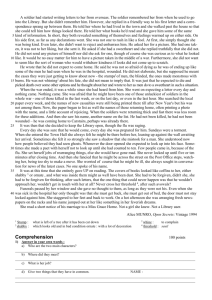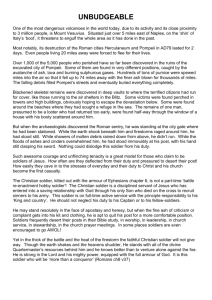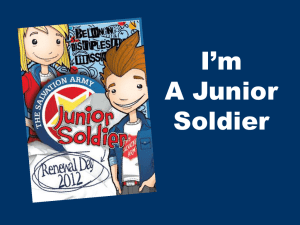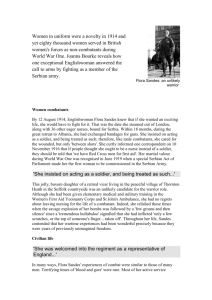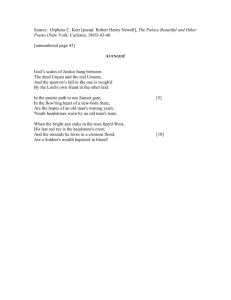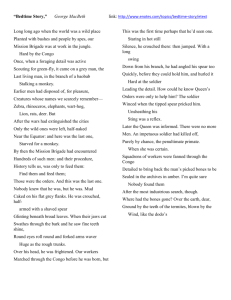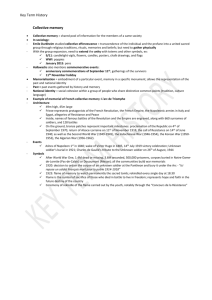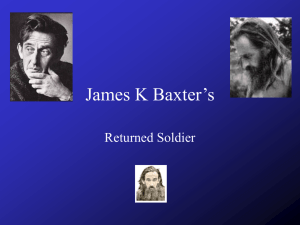Why I Left the Military
advertisement
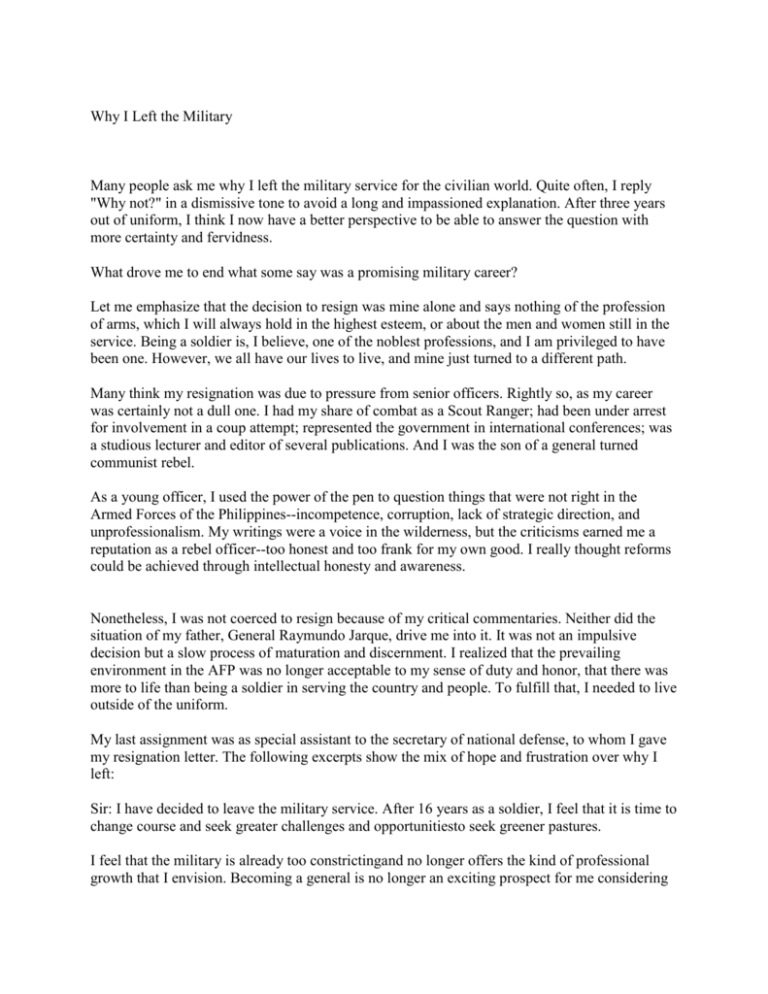
Why I Left the Military Many people ask me why I left the military service for the civilian world. Quite often, I reply "Why not?" in a dismissive tone to avoid a long and impassioned explanation. After three years out of uniform, I think I now have a better perspective to be able to answer the question with more certainty and fervidness. What drove me to end what some say was a promising military career? Let me emphasize that the decision to resign was mine alone and says nothing of the profession of arms, which I will always hold in the highest esteem, or about the men and women still in the service. Being a soldier is, I believe, one of the noblest professions, and I am privileged to have been one. However, we all have our lives to live, and mine just turned to a different path. Many think my resignation was due to pressure from senior officers. Rightly so, as my career was certainly not a dull one. I had my share of combat as a Scout Ranger; had been under arrest for involvement in a coup attempt; represented the government in international conferences; was a studious lecturer and editor of several publications. And I was the son of a general turned communist rebel. As a young officer, I used the power of the pen to question things that were not right in the Armed Forces of the Philippines--incompetence, corruption, lack of strategic direction, and unprofessionalism. My writings were a voice in the wilderness, but the criticisms earned me a reputation as a rebel officer--too honest and too frank for my own good. I really thought reforms could be achieved through intellectual honesty and awareness. Nonetheless, I was not coerced to resign because of my critical commentaries. Neither did the situation of my father, General Raymundo Jarque, drive me into it. It was not an impulsive decision but a slow process of maturation and discernment. I realized that the prevailing environment in the AFP was no longer acceptable to my sense of duty and honor, that there was more to life than being a soldier in serving the country and people. To fulfill that, I needed to live outside of the uniform. My last assignment was as special assistant to the secretary of national defense, to whom I gave my resignation letter. The following excerpts show the mix of hope and frustration over why I left: Sir: I have decided to leave the military service. After 16 years as a soldier, I feel that it is time to change course and seek greater challenges and opportunitiesto seek greener pastures. I feel that the military is already too constrictingand no longer offers the kind of professional growth that I envision. Becoming a general is no longer an exciting prospect for me considering the kind of officers being promoted to general rank. As many officers say, 'snappy, shabby, the same salary at napo-promote din naman' I have always believed that being an officer is a noble vocation, but what I have seen are officers who take advantage of the system for selfish and unethical purposes and undercut each other for promotion and assignments. I always thought that being an officer is a public trust--that an officer does not lie, cheat, steal or tolerate those who do. But what I have seen are officers who would not hesitate to lie to advance themselves and cheat the taxpayers of their money. I believe in performance and accountability. I believe in competence and moral courage. I believe in honesty and hard work. I believe in transparency and candor. I have found these rare in the Armed Forces and I would like to seek them somewhere else." Looking back, despite all the hardships and frustrations, I believe it was all worth it. I learned a great deal as a soldier. From the negatives, ironically I learned the positives. From the dishonesty of some officers, I came to appreciate the virtue of honesty. From the corruption I saw, I learned about principles and moral courage; from the hardships in training, about teamwork and strength of purpose; from defeat in battle, humility; from suffering and death, about compassion and mortality. From the positives, I learned to grow. From honest and motivated soldiers, I learned about leadership; from my fellow officers, about camaraderie and friendship; from the little things I had, about simplicity and frugality. Above all, from being a cadet and a soldier, I learned about duty, honor, and country. The greatest gift military service gave me was character. Two other important lessons were leadership and the spirit of service. Now that I am a civilian, I value these lessons and they serve as beacons in my new career. They guide me in finding my path down the future. What I miss is the spirit of service, that feeling that whatever you do is something noble and for the greater good. Today, I sometimes miss wearing the uniform. I miss the soldierly camaraderie, that fellowship which made me feel I belonged to something. I turn to my experiences as a platoon leader and company commander in dealing with corporate leadership and management issues. At times, I long for the simple yet noble life of a soldier. As the saying goes, "Once a soldier, always a soldier." Capt. Rene Jarque Class of 1986
